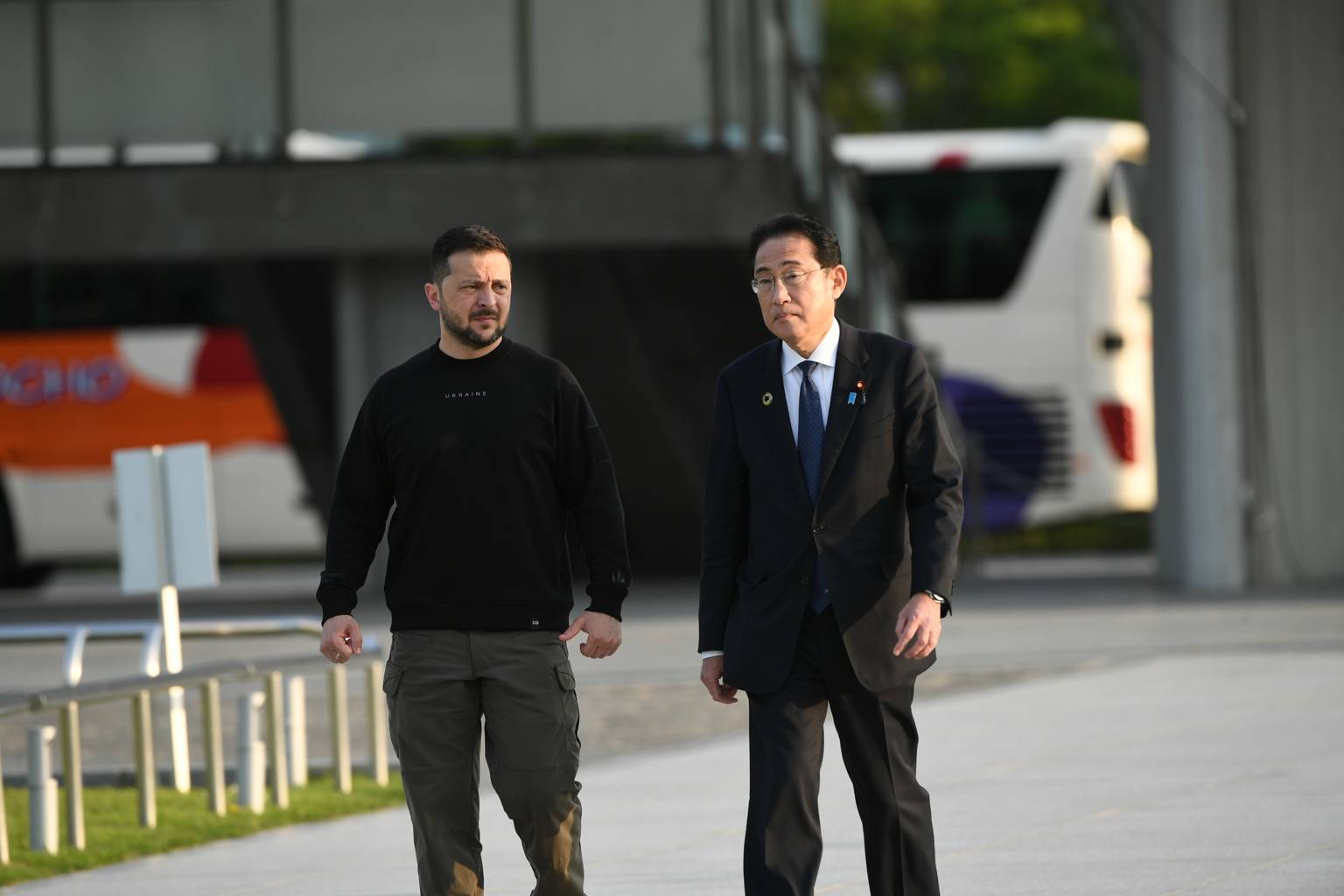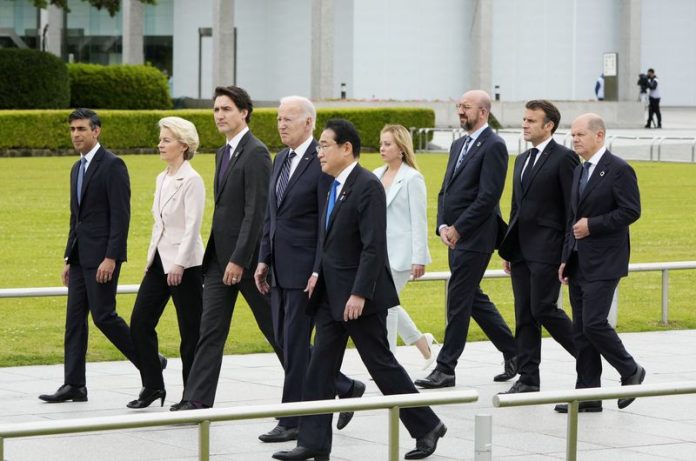This article was originally posted as part of the Atlas Newsletter. The Atlas Newsletter is a weekly journal released every Monday, highlighting the major events of the previous week in brief detail. Subscribe for free here.
Leaders of the world’s most powerful democracies gathered for the Group of Seven (G7) summit in Hiroshima, Japan, this weekend, with focuses set for discussing the war in Ukraine, managing the world economy, and the emergence of a highly aggressive China. The summit saw guest appearances from several nations, most notably from President Volodymyr Zelenskyy of Ukraine.
Japanese Prime Minister Fumio Kishida’s opening speech immediately declared a firm stance against Russian and Chinese aggression, stating, “Having experienced the COVID-19 pandemic and being faced with Russia’s aggression against Ukraine, which shook the very foundation of the international order, the international community is now at a historic turning point. The G7 firmly rejects any unilateral attempt to change the status quo by force or the threat or use of nuclear weapons and upholds the international order based on the rule of law.”

The summit’s primary talking point revolved around the member states’ collective relationship with China, most notably how to eliminate the threat of expansion without damaging economic ties with the Chinese. The meeting nations called on China to “engage” with them and emphasized that they “stand prepared to build constructive and stable relations”. However, much of the conference was highly wary of China and critical of China’s expansionism and economic coercion, particularly in Asia.
“There is no legal basis for China’s expansive maritime claims in the South China Sea, and we oppose China’s militarization activities in the region,” the summit’s ending communiqué reads.
However, the G7 declared they did not seek to “thwart China’s economic progress and development” and that each country would work in its own national interest on particular issues with China.
Japan echoed this sentiment in a statement from an anonymous government official, saying, “There are differences among the G7 nations in terms of issues such as the U.S. investment restrictions on China.”
France spoke for Europe in saying, “At the heart of the message we wanted to get across at this G7 was the European position that China is a partner, complements us, and is a systemic rival, all presented in G7 language.”
President Biden said he expected a thaw in relations with Beijing “very shortly”. He also noted that the United States aimed to not even be dependent on any one country for vital resources. German Chancellor Olaf Scholz said the G7 nations would continue major investments in China regardless of the riskier exposure.
China responded harshly to the summit, summoning the Japanese envoy and announcing it would block US-based Micron Technology Inc. from selling memory chips to key Chinese industries.

Ukranian President Zelenskyy made a dramatic appearance at the G7, delivering a speech on Sunday as the United States announced another round of defense support to Ukraine, this time including F-16 multirole aircraft. This move notably backpedals on President Biden’s promise not to send these aircraft, as Russia promises retaliation for such a move. Zelenskyy remarked in his speech that photos of the city where the U.S. dropped an atomic bomb in 1945 “absolutely remind me of Bakhmut and other cities like it.” He added that there is “absolutely nothing alive there, all buildings are destroyed, there is even no understanding of where a street is and where a building is. Absolute total destruction Nothing left, no people left.”
The G7 also called on China to appeal to Russia for peace.
Find the entire official G7 Summit Leaders’ Communiqué here.


